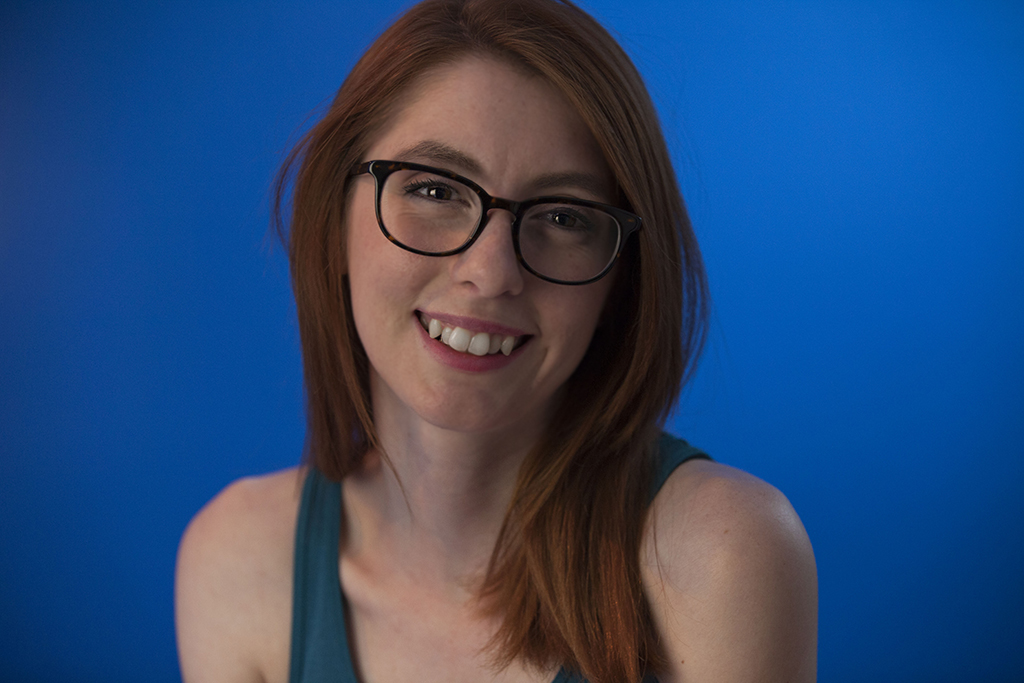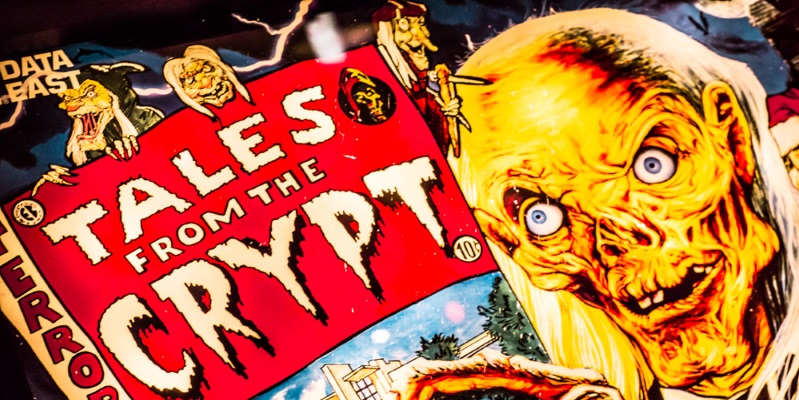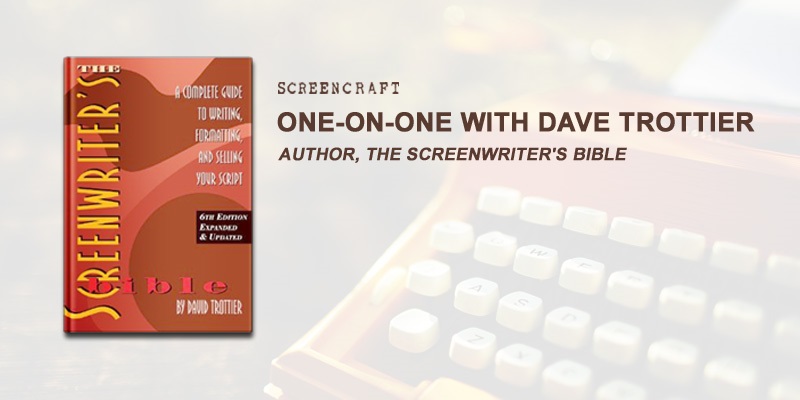7 Questions With Shorts Contest Runner-Up Danielle Barcena

Danielle Bárcena won the second place prize of the 2015 ScreenCraft Short Screenplay Contest with her visceral domestic drama/thriller Away From The Slough, which was also a 2015 BlueCat Screenplay Competition finalist. It's a dynamic script that uses visceral horror overtones to tell the story of a woman trapped in her abusive brother's web. Danielle--who also produces and directs projects through her production company--took the time to talk with us about her creative approach and process.
1) What is your writing process and how long have you been writing?
Writing is like contracting an infectious disease. You're walking along, minding your business when suddenly it strikes - an idea, a feeling, a scene or character. Maybe you dismiss it and see if it goes away on its own. But it keeps eating at you, clouding your head, making it impossible for you to do your day to day tasks. You can't sleep without fever. You can't keep down any food. You know you need to rid yourself of it. That's when you write. That's the only treatment. That writing medicine - some people take it and are cured the first time around. For others, it becomes like managing a chronic illness that requires continuous sessions, so they keep writing, story after story, hoping for a cure. Lucky for me, I'm a hypochondriac.
I like to understand the disease before treating it so I can make sure I'm taking the right medicine. I spend a lot of time developing the story before writing the script pages. I outline and outline and outline until outlining becomes procrastination. Then, when I have a road map for myself, I can feel confident about the writing journey. It helps me to know what the story is and where a scene needs to go before I jump in and fill up the pages. I've been growing as a filmmaker for awhile. Writing and submitting Away From the Slough was like popping a cork and now all these stories that I had been bottling up inside me are spilling out.
2) How have you honed your craft since you began and what resource or activity has been the most helpful in that regard?
Consuming everything I can about the craft of screenwriting and story structure has been the biggest help to me in terms of the technical aspect of writing a screenplay and constructing a story. The Writer’s Journey by Christopher Vogler was the book that made structure really click in my head and using his breakdown of a story really helps me when I am outlining a story. Jumping between writing and studying writing and working on set in any capacity has been an invaluable experience in terms of honing my ability to write a viable screenplay. If you're never done learning then you'll never stop growing and getting better.
Being confident in your skills allows you the freedom to unleash your creativity. If you're distracted by formatting and how to piece a story together or how to carry a scene and all its beats and turns, then you won't be able to express the good part of story - the emotion inside of you begging to be expressed.
I learned how to make cinnamon rolls from scratch. I had to learn how to do that the right way so that the dough would rise and so I could shape it and even after being baked it could still function as a cinnamon roll. Now that I am confident in my ability to perform the basics I get to explore and try new combinations, like spicy chocolate rolls, or blueberry rolls with lemon icing, or stick with the basics and just make a damn good cinnamon roll. Best of all, when you're making food there's generally someone happy to partake in your creation. It's easier to get your food eaten than to get a screenplay read.
3) What was the genesis of AWAY FROM THE SLOUGH? How many drafts have you done and how much has the story evolved? Having multiple contest finalist placements and wins under your belt now, any advice you would offer screenwriters about potentially entering screenplay competitions?
I think that part of the reason why Away From the Slough has been well received is because it has been fermenting inside of me for so long. Aged to perfection. The story has been inside of me, wow, for the good part of a decade. I had outlined and even wrote the first couple pages and knew the major plot points because those were what inspired the story in the first place, but I wasn't ready emotionally to delve into it. Just last year I came back to the story ready to tackle the fear I had of committing to my own, honest work.
Submitting the screenplay to contests was like lifting a weight off of me because that meant it was finally taken out of me and put into the world. The first draft that I submitted to contests was not drastically different, but still a bit reserved. It really worked for me that the BlueCat Screenplay Competition allowed you to submit early and get feedback and then resubmit with changes. That feedback was pretty positive, but it reaffirmed what I was afraid of, that there was something not quite right. I knew what was missing was the psychological aspect that I was still withholding in fear. But I took the risk and told the story that had been eating at me. I only started to be successful once I was true to the story that I wanted to tell.
My experience with ScreenCraft has been wonderful because I like feedback. It was a great feeling getting thorough, thoughtful feedback that was not only constructive but honest. I could tell that an actual person had read my work and responded to it emotionally. In creating art, for me, the goal is to get people to feel the feeling I'm trying to express. But screenwriting is also a business, so it is important to know you are doing that in a way that you can sell to a producer or studio.
Entering screenplay competitions is a lot of work! There's more to it than I imagined going in. Deadlines. Eligibility. So many rules to look through: Cover page? No cover page? Do I mail it or do it online? There are so many competitions and contests out there, so my advice to someone else would be to identify their own goals before entering.
Why are you entering a contest? Do you have a specific story that you're going to throw out there and see how it is received or are the contests going to be your writing prompt? Are you trying to sell your script? Are you looking for feedback? Are you trying to win money?
I think that knowing what you want will help to curate the contests you enter. It'll help reading through the terms and conditions and figuring out a budget, since contests cost money to enter. I would try some that feel right to you, and that is going to be different for everyone.
4) What’s the best operating principle or piece of advice on screenwriting you’ve ever gotten?
I like Dave Trottier’s catch phrase “Keep Writing!” I think that’s motivating! I think that and the old adage to write what you want to watch are really good pieces of advice.
We are in a time where people have an insatiable hunger for stories across all these different platforms. Technology is making filmmaking so accessible, so if you have something to say, this is a great time to say it and be heard.
Even if there isn't a pre-defined audience for your story that is no excuse no to write it. We don't grow if we don't try new and different things. At the very least if no one watches your movie, if you write from the heart you'll at least free yourself from the burden of your story instead of allowing it to weigh you down.
5) Who are your writing influences?
John Steinbeck has been a great influence on me. I admire his observational style of the people and places he considers and how he tells stories of characters not often glamorous enough for other stories. Ray Bradbury and his ability to write and write and write is inspirational as well. Reading his short stories is great because you get to see someone who just had a desire to write no matter if there wasn't necessarily an obvious place for the story in the world.
Growing up, Alfred Hitchcock Presents, Creepshow and Tales From the Crypt were some of my favorites. And of course The Outer Limits and The Twilight Zone. I think those shows informed and shaped my enthusiasm for eerie short content. I would love the chance to be part of the writing team on a reboot of Tales From the Crypt.
6) What are your short-term and long-term goals in the industry? What have you been able to do in your career so far and what would you like to do next?
I’ve been so lucky to get to work with so many talented people on projects in the San Francisco Bay Area. I learned filmmaking by jumping between working on sets in various capacities - acting and being a child body double, crafty, production, and taking classes and working on shorts there, too, it all has really helped me to hone my skills as a filmmaker. I have always wanted to write, produce, and direct. My partner Mike Alfieri and I started our production company CinemaDuo after we realized we both shared the same work ethic and values and desire to make movie magic. We are currently in production on a couple shorts that I wrote. I'd love to direct Away From the Slough once it finishes the contest circuit.
I am writing a couple feature-length screenplays right now - a sci-fi, a coming- of-age romantic comedy, and a thriller that shares themes and tone with Away From the Slough. Aside from writing and directing pieces with CinemaDuo, I would love to write something someone else could take and develop themselves. I love to collaborate with other filmmakers and I feel we can learn so much from others.
7) How has your directing and acting experience informed your approach to screenwriting?
I grew up playing with my dad’s big VHS camera, taping little skits, so there’s always been this need to create in me and I didn’t necessarily understand how filmmaking worked with other people but found acting as a way to express that and get on set. That was just sort of the first job available to me. Acting helps both in writing and in directing because you get an understanding of what an actor needs and what they tend to do with the material. A script needs to be actable. You need to be able to communicate emotions and actions with the actor.
Even beyond acting and directing it is important to know how the whole crew works. There are so many people in a film crew and they all use the script in various ways. A screenplay is a tool, a set of directions for people to follow in order to do their jobs. Like a game of "telephone," your screenplay needs to be able to handle being filtered through different people to resemble to same message at both ends.
People work long, hard hours and devote their lives into working on a film, so I want to write something that people will be excited to work on and can be proud of. The desire to do that is why we made CinemaDuo - to treat our stories, people, and audiences with respect and contribute something to the world.
Follow Danielle on Twitter at @daniellebarcena, and on Instagram, and check out the official site for her production company CinemaDuo and her personal site at www.daniellebarcena.com.
Tags
Get Our Screenwriting Newsletter!
Get weekly writing inspiration delivered to your inbox - including industry news, popular articles, and more!



























